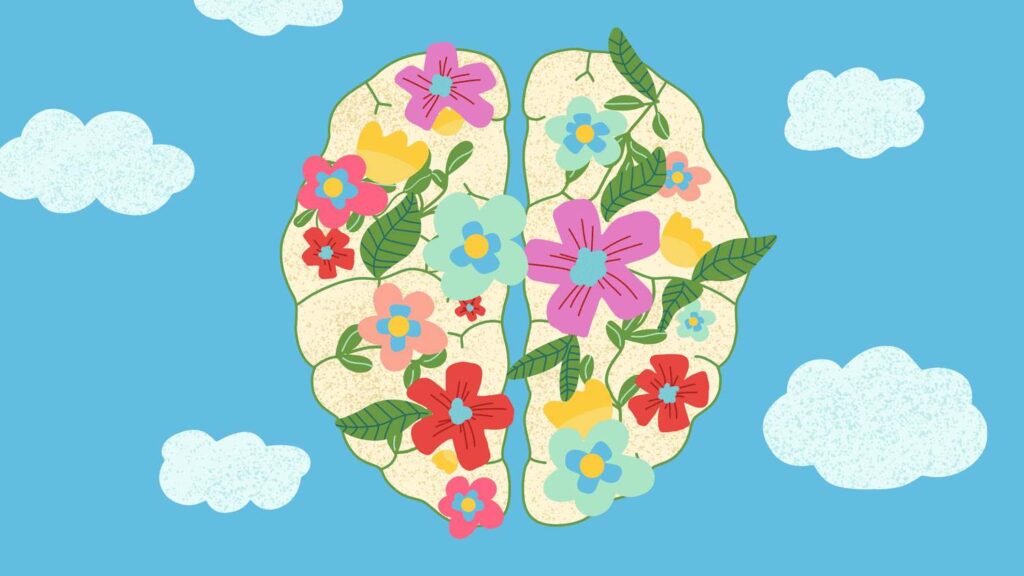Can Emotional Intelligence Be Taught?

Emotional intelligence (EI) has gained significant attention in recent years, particularly within psychology and cognitive science. Its importance in personal success, interpersonal relationships, and professional achievement has been widely recognized. Emotional intelligence refers to the ability to perceive, evaluate, and manage emotions in oneself and others. Given its influence on various life outcomes, a critical question emerges: can emotional intelligence be taught? This article delves into the psychological and cognitive dimensions of emotional intelligence, exploring whether it can indeed be nurtured and developed through education, training, and practice.
Understanding Emotional Intelligence

To address the question, can emotional intelligence be taught, we first need to clarify what emotional intelligence entails. The concept was popularized by psychologist Daniel Goleman, who identified five key components: self-awareness, self-regulation, motivation, empathy, and social skills. These components allow individuals to recognize and understand their emotions, control impulsive feelings and behaviors, empathize with others, and build strong relationships.
From a psychological standpoint, emotional intelligence is more than just innate talent. It involves a set of skills that can be developed over time. The brain’s plasticity, or its ability to rewire itself in response to experiences, supports the notion that emotional intelligence can be enhanced through deliberate practice. Cognitive science also supports this idea, as emotional intelligence involves complex cognitive processes such as emotional recognition, appraisal, and regulation. These processes are not fixed but can be shaped by experience and learning. This brings us back to the key question: can emotional intelligence be taught?
Psychological Foundations of Emotional Intelligence
Psychologists have long studied the roots of emotional intelligence, examining how it develops and whether it can be taught. Early developmental theories emphasized the role of caregivers and early socialization in shaping emotional responses. Secure attachment, for example, has been linked to higher emotional intelligence in adulthood. Children who experience responsive and empathetic caregiving tend to develop better emotional regulation skills, which are crucial components of emotional intelligence.
However, the question remains: can emotional intelligence be taught beyond these formative years? Research suggests that while early experiences play a critical role, emotional intelligence can indeed be developed later in life. Psychologists have identified several pathways for teaching emotional intelligence, including formal education, therapeutic interventions, and workplace training programs.
Cognitive Processes Involved in Emotional Intelligence
From a cognitive perspective, emotional intelligence involves several interconnected processes. One key component is emotional perception, which involves accurately identifying and interpreting emotional cues in oneself and others. This process relies on neural mechanisms in the brain’s limbic system, particularly the amygdala and prefrontal cortex, which are involved in processing emotions and regulating behavior.
Cognitive scientists have also studied how emotional intelligence interacts with other cognitive functions, such as attention, memory, and decision-making. For instance, emotionally intelligent individuals are better able to manage their attention, focusing on relevant information while filtering out emotional distractions. They are also more effective at using their emotional experiences to inform decision-making, a process known as emotional reasoning.
Given that cognitive processes underpin emotional intelligence, it stands to reason that these processes can be modified through learning and practice. This cognitive flexibility suggests that emotional intelligence is not a fixed trait, but a set of skills that can be cultivated. Thus, the question can emotional intelligence be taught can be answered affirmatively from a cognitive perspective, provided that the right interventions and practices are implemented.
Educational Approaches to Teaching Emotional Intelligence

In the realm of education, there has been growing interest in incorporating emotional intelligence into school curricula. Social and Emotional Learning (SEL) programs are designed to teach students how to manage their emotions, build positive relationships, and make responsible decisions. These programs are based on the premise that emotional intelligence can be taught and that doing so will improve students’ academic performance and well-being.
Research on SEL programs provides compelling evidence that emotional intelligence can be taught. A meta-analysis of over 200 studies found that students who participated in SEL programs showed significant improvements in their emotional and social skills, behavior, and academic achievement compared to those who did not participate. These findings support the idea that emotional intelligence can be cultivated through structured educational interventions.
SEL programs typically focus on developing the core components of emotional intelligence, such as self-awareness, self-regulation, and empathy. Through activities like mindfulness exercises, role-playing, and reflective discussions, students learn how to identify their emotions, manage stress, and empathize with others. The success of these programs suggests that emotional intelligence is not only teachable but also has a lasting impact on students’ lives. Therefore, the question can emotional intelligence be taught is increasingly being answered in the affirmative within educational contexts.
Therapeutic Interventions for Enhancing Emotional Intelligence
Therapeutic interventions also provide evidence that emotional intelligence can be taught. Cognitive-behavioral therapy (CBT), for example, is a widely used therapeutic approach that focuses on helping individuals recognize and change unhelpful thoughts and behaviors. A key component of CBT involves teaching clients how to regulate their emotions, a skill closely related to emotional intelligence.
CBT and other therapeutic approaches, such as dialectical behavior therapy (DBT) and mindfulness-based interventions, have been shown to improve emotional regulation and interpersonal effectiveness. These therapies teach individuals how to recognize their emotional triggers, manage intense emotions, and communicate more effectively with others. The success of these interventions suggests that emotional intelligence can be enhanced through targeted therapeutic strategies. Consequently, when we ask, can emotional intelligence be taught, the therapeutic domain offers a resounding yes.
Moreover, neuroimaging studies have shown that therapy can lead to changes in brain regions associated with emotional processing and regulation. This evidence supports the idea that emotional intelligence can be taught and developed through therapeutic interventions, as these treatments can alter the cognitive and neural processes underlying emotional intelligence.
Emotional Intelligence in the Workplace

The question can emotional intelligence be taught is particularly relevant in the workplace, where emotional intelligence has been linked to leadership effectiveness, job performance, and team cohesion. Many organizations have recognized the importance of emotional intelligence and have implemented training programs to develop these skills among employees and leaders.
Workplace training programs often focus on developing emotional self-awareness, empathy, and communication skills. These programs use a variety of methods, including workshops, coaching, and experiential learning, to help employees improve their emotional intelligence. Research on workplace emotional intelligence training suggests that these programs can lead to significant improvements in emotional intelligence, job satisfaction, and team performance.
One of the most successful examples of workplace emotional intelligence training comes from Google, which implemented a mindfulness-based emotional intelligence program called “Search Inside Yourself.” The program teaches employees how to manage their emotions, build resilience, and develop empathy for others. Evaluations of the program have shown that it leads to lasting improvements in emotional intelligence and well-being. In this context, the question can emotional intelligence be taught is effectively answered by the success of such workplace programs.
Can Emotional Intelligence Be Taught at Different Life Stages?
A key question in the debate over can emotional intelligence be taught is whether it can be developed at different life stages. While early childhood is a critical period for emotional development, research suggests that emotional intelligence can be cultivated throughout the lifespan. Adolescence and young adulthood, in particular, are important stages for emotional intelligence development, as individuals experience significant emotional and social changes during this time.
For example, emotional intelligence training programs for adolescents have been shown to improve emotional regulation, social competence, and mental health. These programs often focus on teaching adolescents how to manage stress, build healthy relationships, and make responsible decisions. The success of these programs suggests that emotional intelligence can be taught during this critical developmental period.
In adulthood, emotional intelligence continues to play a crucial role in personal and professional success. Many adults seek to improve their emotional intelligence through self-help books, workshops, and coaching. While self-directed learning can be effective, structured interventions, such as therapy and workplace training programs, are often more successful in fostering lasting changes in emotional intelligence. So, at every life stage, can emotional intelligence be taught remains a relevant question, and the evidence suggests that the answer is yes.
The Role of Mindfulness in Teaching Emotional Intelligence

Mindfulness has emerged as a powerful tool for enhancing emotional intelligence. Mindfulness involves paying attention to the present moment without judgment, which can help individuals become more aware of their emotions and reactions. Research has shown that mindfulness practice can lead to improvements in emotional regulation, empathy, and self-awareness, all of which are key components of emotional intelligence.
Mindfulness-based interventions, such as Mindfulness-Based Stress Reduction (MBSR) and Mindfulness-Based Cognitive Therapy (MBCT), have been shown to increase emotional intelligence in both clinical and non-clinical populations. These interventions teach individuals how to observe their emotions without becoming overwhelmed by them, allowing for greater emotional regulation and improved interpersonal relationships. The success of mindfulness-based interventions adds yet another layer to the positive response to the question, can emotional intelligence be taught.
The success of mindfulness-based interventions provides further evidence that emotional intelligence can be taught. By cultivating mindfulness, individuals can develop greater emotional awareness and regulation, which are essential skills for emotional intelligence. Moreover, mindfulness practice has been shown to lead to changes in brain regions associated with emotional processing, suggesting that it can have a lasting impact on emotional intelligence.
Challenges and Limitations in Teaching Emotional Intelligence
Despite the evidence that emotional intelligence can be taught, there are challenges and limitations to consider. One challenge is that emotional intelligence is a complex construct that involves multiple interrelated skills. Teaching emotional intelligence requires a multifaceted approach that addresses emotional awareness, regulation, empathy, and social skills. This can be difficult to achieve in a single intervention or training program.
Another limitation is that individual differences in personality, temperament, and cognitive abilities can affect the success of emotional intelligence training. For example, individuals with higher levels of neuroticism may find it more difficult to regulate their emotions, while those with lower cognitive empathy may struggle to understand the emotions of others. These individual differences suggest that emotional intelligence training may need to be tailored to the unique needs of each person.
Furthermore, cultural factors can influence emotional intelligence and its development. Different cultures have different norms for expressing and regulating emotions, which can affect how emotional intelligence is taught and applied. For example, in some cultures, emotional restraint is valued, while in others, emotional expressiveness is encouraged. These cultural differences highlight the need for culturally sensitive approaches to teaching emotional intelligence.
Conclusion
In conclusion, the question can emotional intelligence be taught is one that has been explored from various psychological and cognitive perspectives. The evidence suggests that emotional intelligence is not a fixed trait, but a set of skills that can be developed through education, training, and practice. From early childhood through adulthood, emotional intelligence can be enhanced through structured interventions, such as SEL programs, therapeutic approaches, and workplace training.
While there are challenges and limitations to teaching emotional intelligence, the success of various interventions provides compelling evidence that emotional intelligence can indeed be taught. As our understanding of the psychological and cognitive processes underlying emotional intelligence continues to grow, so too will our ability to effectively teach and cultivate these skills across the lifespan.
In answering the question, can emotional intelligence be taught, we must recognize that it is not a simple yes or no answer. Emotional intelligence can be nurtured through various methods, but its development depends on individual, cultural, and contextual factors. By continuing to explore and refine approaches to teaching emotional intelligence, we can help individuals build the emotional skills necessary for success in both their personal and professional lives.
